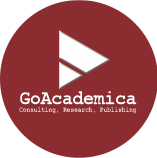URGENSI PERUBAHAN ORGANISASI DALAM MENGHADAPI COVID-19
DOI:
https://doi.org/10.15575/jim.v3i1.19553Keywords:
Covid-19, Organisasi, Pandemik, Perubahan Organisasi.Abstract
References
Ali, I., & Alharbi, O. M. (2020). COVID-19: Disease, management, treatment, and social impact. Science of the total Environment, 728, 138861.
Barthakur, A., Kovanovic, V., Joksimovic, S., Zhang, Z., Richey, M., & Pardo, A. (2022). Measuring leadership development in workplace learning using automated assessments: Learning analytics and measurement theory approach. British Journal of Educational Technology.
Bloom, D. E., Kuhn, M., & Prettner, K. (2022). Modern infectious diseases: macroeconomic impacts and policy responses. Journal of Economic Literature, 60(1), 85-131.
Boukamcha, F. (2019). The effect of transformational leadership on corporate entrepreneurship in Tunisian SMEs. Leadership & Organization Development Journal.
Browning, T. R. (2018). Building models of product development processes: An integrative approach to managing organizational knowledge. Systems Engineering, 21(1), 70-87.
Chamoso, P., González-Briones, A., Rivas, A., De La Prieta, F., & Corchado, J. M. (2019). Social computing in currency exchange. Knowledge and Information Systems, 61(2), 733-753.
Ciriello, R. F., Richter, A., & Schwabe, G. (2018). Digital innovation. Business & Information Systems Engineering, 60(6), 563-569.
Cleaver, F., & Whaley, L. (2018). Understanding process, power, and meaning in adaptive governance. Ecology and Society, 23(2).
Davis-Singaravelu, S. (2022). The Potential to Build Collective Capacity for Organisational Learning in the Context of Teachers’ Use of Digital Technology for School Improvement. Education Sciences, 12(1), 33.
Drago, A. (2021). A New History of Logic: The Laborious Birth of a Formal Pluralism. Advances in Historical Studies, 10(4), 247-276.
Ferronato, N., Rada, E. C., Portillo, M. A. G., Cioca, L. I., Ragazzi, M., & Torretta, V. (2019). Introduction of the circular economy within developing regions: A comparative analysis of advantages and opportunities for waste valorization. Journal of environmental management, 230, 366-378.
Hu, Y., Sun, J., Dai, Z., Deng, H., Li, X., Huang, Q., ... & Xu, Y. (2020). Prevalence and severity of corona virus disease 2019 (COVID-19): A systematic review and meta-analysis. Journal of clinical virology, 127, 104371.
Katsaros, K. K., Tsirikas, A. N., & Kosta, G. C. (2020). The impact of leadership on firm financial performance: the mediating role of employees' readiness to change. Leadership & Organization Development Journal.
Kissell, R. E., & Trujillo, T. (2020). Leading towards equity through decades of reform: Oral histories of district politics and community-driven reform in Oakland. Urban Education, 0042085920954905.
Li, S., Wang, Y., Filieri, R., & Zhu, Y. (2022). Eliciting positive emotion through strategic responses to COVID-19 crisis: Evidence from the tourism sector. Tourism management, 90, 104485.
Sari, A. L. (2020). The COVID-19 Pandemic and Distance Learning: Challenges for Students at Colleges in Indonesia. ITALIENISCH, 10(2), 11-23.
Ihani, W., Syofya, H., Sari, A. L., Mulawarman, W. G., & Sriyanto, S. (2020). The Role of the Creative Industry in Economic Development. Journal of Environmental Treatment Techniques, 8(1), 268-271.
Ishak, D., & Chotim, E. R. (2018). Kebijakan Bandung Transit Area (BTA) Untuk Peningkatan Kunjungan Wisata. TEMALI: Jurnal Pembangunan Sosial, 1(1), 33-57.
Basem, Z. ., Zulher, Yusril, M. ., & Pangestika, N. D. (2022). Analysis of Discipline, Organizational Commitment, Work Environment and Their Effect on Employee Performance PT. Adhiyasa Bangkinang. INFLUENCE: International Journal of Science Review, 4(2), 11–22. https://doi.org/10.54783/influencejournal.v4i2.28
Subroto, W. (2022). PERLUNYA KEADILAN RESTORATIF DALAM SISTIM PERADILAN ANAK TERHADAP KENAKALAN REMAJA. Jurnal Kelola: Jurnal Ilmu Sosial, 5(1), 23-30.
Gennusi, R. S. A., & Maharani, N. K. (2021). The Effect of Investment Opportunity Set, Lagged Dividend and Managerial Ownership on Dividend Policy. PAPATUNG: Jurnal Ilmu Administrasi Publik, Pemerintahan Dan Politik, 4(1), 112-120.
Chotim, E. E. (2020). Kesetaraan Gender Dan Pemberdayaan Perempuan Di Indonesia: Keinginan Dan Keniscayaan Pendekatan Pragmatis (Studi Terhadap Ukm Cirebon Home Made). AKSELERASI: Jurnal Ilmiah Nasional, 2(1), 70-82.
Nurjaman, K. (2022). Pemberdayaan E-Commerce di Kalangan Pelaku UMKM di Indonesia. Jurnal Abdimas Peradaban, 3(1), 34-40.
Efendi, S., & Rahardja, E. (2021). The role of intellectual capital, intrinsic motivation, and competence on service performance: Empirical Studies at Jakarta private universities. International Journal of Science and Society, 3(3), 170-185.
Madsen, H. L. (2020). Business model innovation and the global ecosystem for sustainable development. Journal of Cleaner Production, 247, 119102.
Mahdi, O. R., Nassar, I. A., & Almsafir, M. K. (2019). Knowledge management processes and sustainable competitive advantage: An empirical examination in private universities. Journal of Business Research, 94, 320-334.
Malik, T. H., Kabiraj, S., & Lestan, F. (2022). Prestige of the Decision Ecology and Risk-taking in R&D Project in the Biopharmaceutical Sector. Global Business Review, 09721509221093484.
Matli, W. (2020). The changing work landscape as a result of the Covid-19 pandemic: insights from remote workers life situations in South Africa. International Journal of Sociology and Social Policy.
McIver, D., Lengnick-Hall, M. L., & Lengnick-Hall, C. A. (2018). A strategic approach to workforce analytics: Integrating science and agility. Business Horizons, 61(3), 397-407.
Pacewicz, J. (2018). The regulatory road to reform: Bureaucratic activism, agency advocacy, and medicaid expansion within the delegated welfare state. Politics & Society, 46(4), 571-601.
Pardede, M. (2021). Aspek Hukum Kekarantinaan Kesehatan dan Perlindungan Konsumen dalam Penanggulangan Pandemi Covid-19. Jurnal Penelitian Hukum De Jure, 21(1), 23-44.
Ray, V. (2019). A theory of racialized organizations. American Sociological Review, 84(1), 26-53.
Stouten, J., Rousseau, D. M., & De Cremer, D. (2018). Successful organizational change: Integrating the management practice and scholarly literatures. Academy of Management Annals, 12(2), 752-788.
Tang, J. W., Tambyah, P. A., & Hui, D. S. (2020). Emergence of a novel coronavirus causing respiratory illness from Wuhan, China. Journal of infection, 80(3), 350-371.
Wang, Y., Hong, A., Li, X., & Gao, J. (2020). Marketing innovations during a global crisis: A study of China firms’ response to COVID-19. Journal of Business Research, 116, 214-220.
Downloads
Published
How to Cite
Issue
Section
Citation Check
License

This work is licensed under a Creative Commons Attribution-ShareAlike 4.0 International License.













